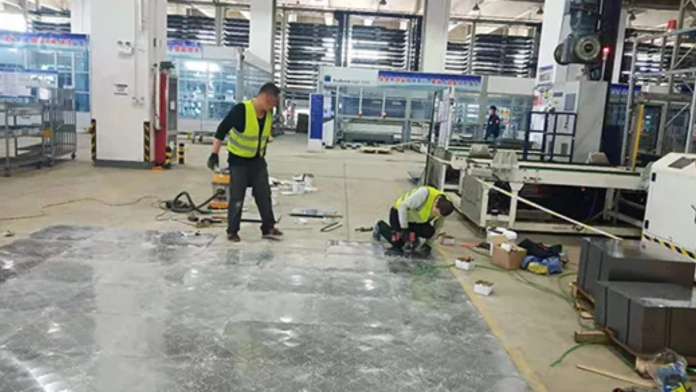Choosing the appropriate steel flooring for a typical industrial setting is vital for fulfilling certain operational demands. This article identifies crucial aspects to review when determining the best steel flooring for a building. Making wise choices can improve performance and ensure safety.
Assessing Load-Bearing Requirements
Recognising the weight and intensity of your flooring is crucial. Industrial settings may vary in their requirements. A warehouse might encounter significant forklift loads, while a manufacturing plant could have numerous powerful machines running at once.
There exist different types of steel flooring with unique load-carrying abilities. The strength of stainless steel flooring allows it to support heavy loads effectively without deformation. Galvanised steel provides a strong foundation yet might have a smaller capacity for loads like stainless steel. Carbon steel offers strong performance but is ideally placed in areas that don’t typically face heavy usage. Review the unique factors to determine the right option for your industrial area.
Choosing Between Stainless, Galvanized, and Carbon Steel
Different types of heavy industrial steel flooring have specific qualities that are suitable for diverse conditions.
Stainless Steel: This material is very durable against corrosion and wear. It thrives in settings where moisture or chemicals regularly occur. The food processing and pharmaceutical sectors achieve high benefits with stainless steel flooring due to its sanitary characteristics and maintenance friendliness.
Galvanised Steel: Galvanized steel exhibits remarkable strength against corrosion. Such materials usually exist in situations that deal with moisture but might not be as strong as stainless steel in extreme conditions. Many warehouses and outdoor storage locations find this option appealing as it combines practicality and longevity.
Carbon Steel: Carbon steel demonstrates good durability and reliable support but needs specific processing to endure corrosive threats. It is a suitable option for interiors that see limited chemical exposure. In settings that do not experience extreme climates, carbon steel offers price-friendly solutions.
Considering Environmental Factors
Flooring choices depend heavily on environmental factors. Variations in temperatures and moisture levels can greatly impact your flooring selection. High humidity can cause rust and damage to flooring made of non-corrosive materials.
Stainless steel flooring thrives in these conditions because of its excellent corrosion protection. Galvanised steel flooring excels in wet conditions by safeguarding against rust with its protective qualities. Humidity affects carbon steel by requiring greater support and upkeep for a longer life.
Evaluating Safety and Anti-Slip Features
Safety is a top priority in any workplace environment. Regulator control is essential for minimising hazards. Floors must possess traits that boost stability in locations vulnerable to spills.
When deciding on flooring consider textures or coatings that enhance safety against slips. These elements improve safety and boost productivity by enabling personnel to move swiftly and avoid accidents.
Customisation and Design Flexibility
Tailoring steel flooring can meet the distinct demands of a manufacturing space. Evaluate dimensions and density, along with aesthetic attributes, to pick the finest flooring. Several manufacturers supply designs that facilitate rapid installation and adjustability for tailored workspace setups.
This adaptability can improve the layout of your facility, facilitating better equipment placement and workflow. Validate that the flooring can accommodate any modifications in your operational processes.
Conclusion
Selecting the best steel flooring hinges on making careful decisions regarding safety and environmental factors. Evaluating these aspects will enhance both performance and durability. Purchasing durable steel flooring made from materials such as stainless or carbon steel guarantees safety and effectiveness for the facility. Prioritising the workspace’s unique needs allows you to choose an ideal flooring option that enhances operational effectiveness.











